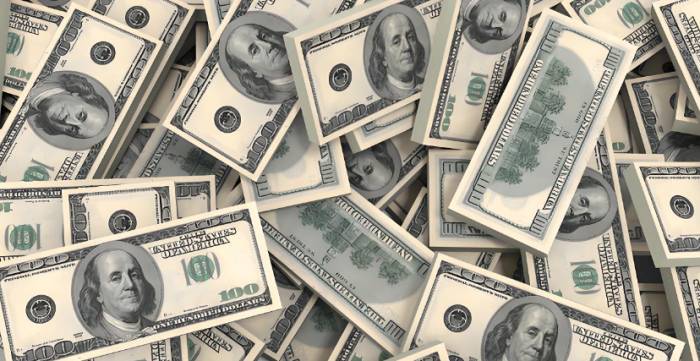-
The Ultimate Diving Equipment List: What You Actually Need (2024 Guide)
Jan 10,2026 -
Where in Florida Can I Swim with Sea Turtles? Top Spots & Essential Guide
Jan 22,2026 -
Is Diving Insurance Worth It? A Practical Guide for Every Diver
Jan 13,2026 -
What is the 1/3 Rule in Diving? A Complete Guide to Safer Gas Management
Jan 20,2026 -
Your Complete Guide to Diving Equipment: Gear Up Safely & Confidently
Jan 03,2026 -
Ultimate Guide to the Best Philippines Diving Places: From Tubbataha to Coron
Jan 15,2026 -
Best Places to See Sea Turtles in Europe: A Complete Guide
Jan 23,2026 -
Where to Swim with Turtles in the Caribbean: Top Islands & Tips
Jan 31,2026 -
Is Coral Bleaching Increasing? A Data-Driven Look at the Crisis
Feb 03,2026 -
Best Places to Swim with Turtles in Europe: A Guide to Unforgettable Encounters
Jan 28,2026
Fed's Second Rate Cut: Impacts & Effects
In today's volatile global economic environment, major financial news is always closely related to the dynamics of the Federal Reserve. If the Federal Reserve chooses to cut interest rates again, what would this mean? How would it affect our lives, investments, and the future economic trend? Today, let's discuss the profound impact of the Federal Reserve's potential second interest rate cut.
1. What is an interest rate cut?
Let's start by briefly explaining what an interest rate cut is. When the Federal Reserve cuts interest rates, it lowers the cost of borrowing. Whether it's personal loans, mortgages, or corporate loans, they all become easier to obtain. Doesn't that sound great?
2. Direct impact on consumers
If the Federal Reserve cuts interest rates again, the first and most direct beneficiaries would be consumers. With lower mortgage rates, the cost of buying a home decreases, making homebuyers very happy. For example, a house that used to have a monthly payment of 3000 yuan might now only require 2800 yuan. As a result, not only can they save some money, but they can also more easily purchase their dream home.
Additionally, interest rates on credit cards and auto loans will also decrease accordingly. Many people might choose to take this opportunity to consume and invest. This consumer boom could potentially stimulate economic growth and further guide the direction of the Federal Reserve's policies.
3. Corporate response
Next, let's look at how businesses might respond. With lower barriers to corporate loans, many small businesses might seize this opportunity to increase investment and expansion. This is good news for businesses, as they can obtain funds at a lower cost for equipment updates or market expansion.
However, competition among businesses may also intensify, especially in the capital market. Companies that can effectively utilize funds and quickly respond to market demands will gain an advantage in this competition.4. Stock Market Barometer

When the Federal Reserve intends to lower interest rates, the stock market often exhibits an upward trend. This is because lower interest rates imply a more abundant supply of funds, and investors may be more inclined to invest in the stock market, thereby driving up stock prices. In such circumstances, blue-chip stocks and technology stocks may become hot spots for investor pursuit.
Of course, the stock market is not always smooth sailing. If the rate cut fails to stimulate economic growth as expected, investor confidence may be shaken, and the stock market could experience significant fluctuations. Therefore, investors need to remain vigilant and adjust their strategies in a timely manner.
5. Inflation Concerns
Although lowering interest rates can stimulate the economy in the short term, it may also bring concerns about inflation. Reduced borrowing costs make people more willing to consume, increasing market demand, which could lead to rising prices. If the Federal Reserve does not take timely measures to control inflation levels, it may ultimately affect the purchasing power of the public.
Thus, while enjoying the convenience brought by interest rate cuts, we must also pay close attention to changes in the economic situation to avoid overlooking potential risks due to blind optimism.
6. Fluctuations in the US Dollar Exchange Rate
Additionally, interest rate cuts can impact the US dollar exchange rate. Generally speaking, rate cuts lead to a devaluation of the US dollar, as lower interest rates reduce the attractiveness of foreign investment. This could be good news for countries reliant on imports, as currency devaluation helps to enhance export competitiveness. However, for consumers of imported goods and services, prices may rise.
Furthermore, a devalued US dollar may reduce the interest of foreign capital in investing in the United States, thereby affecting the confidence of foreign investors. Therefore, when deciding whether to lower interest rates, the Federal Reserve needs to weigh various factors.7. Global Economic Chain Reactions
Lastly, remember that the US dollar is one of the world's major currencies, and every decision made by the Federal Reserve can trigger a chain reaction globally. If the Federal Reserve lowers interest rates, the impact is not only on the US economy but also significant for the global economy. Developing countries may experience an influx of capital, while developed countries must be vigilant about the impact of a depreciating dollar.
In summary, the Federal Reserve's decision to lower interest rates is a double-edged sword. It can stimulate economic development, promote consumption and investment, but it may also lead to inflation and exchange rate fluctuations. Therefore, as ordinary consumers and investors, we need to pay attention to these changes and be prepared accordingly.
Your comment